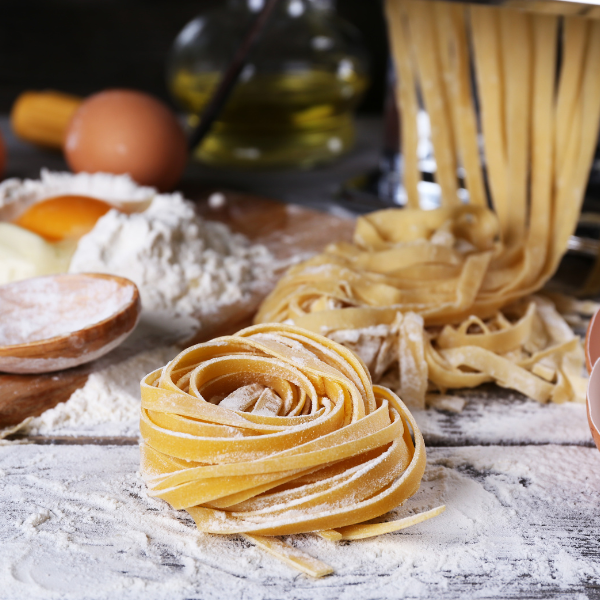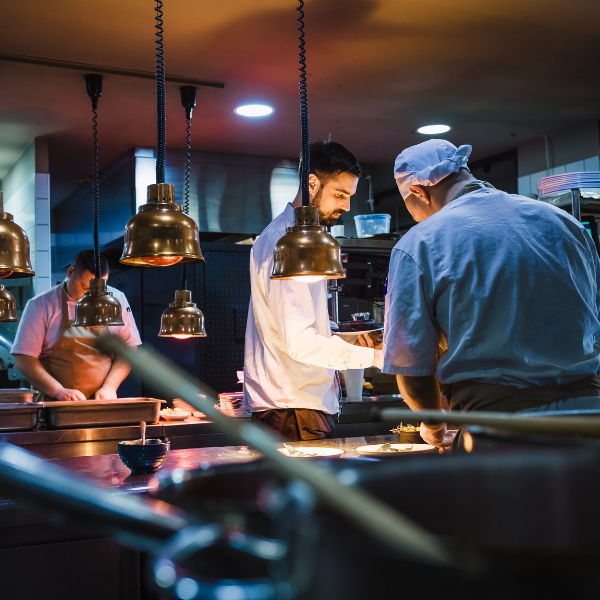The dining landscape is multifaceted, with cuisines as diverse as the cultures they represent. However, some of the best establishments break the mold by presenting a more modest selection to patrons. Why might more restaurants want to consider this strategy? This streamlined approach carries significant benefits for operations and customers. Let's explore!
Advantages Of Culinary Specialization
Moving away from a “jack of all trades” approach, restaurants with smaller menus have the opportunity to carve out a specific niche for themselves, enabling them to cultivate a distinct identity in the crowded restaurant scene.
Creating Signature Impressions
Constraining the number of items also allows restaurants to create signature dishes that leave a lasting impression. These unique and memorable selections often become customer favorites, significantly contributing to the establishment's reputation and brand recall. More than just a single item on the menu, they become synonymous with the restaurant itself, an embodiment of its culinary philosophy and commitment to excellence. By limiting the number of items, restaurants can create:
- Unique and memorable dishes that stand out
- Signature items that become customer favorites
- A stronger reputation based on these standout dishes
Perfecting The Art Of Culinary Excellence
Restricting the selection of dishes allows chefs to devote their complete attention to every menu item. Rather than spreading themselves thin over many different offerings, the culinary team can focus their skill and knowledge on fewer dishes. A smaller menu allows chefs to:
- Focus on perfecting fewer dishes
- Master their craft and deliver consistently good food
- Dedicate more time, creativity, and finesse to each item
Using High-Quality Appliances For Culinary Enhancement
Limited, high-quality appliances allow chefs to hone their skills and work with precision, ensuring each tool serves its purpose efficiently.
- Investing in chef's knives and precision cutting tools allows chefs to execute intricate cuts with accuracy, enhancing the overall precision of their culinary creations.
- High-performance food processors with powerful motors and versatile attachments streamline chopping, slicing, and dicing tasks, promoting efficiency in kitchen workflows.
Selecting excellent kitchen tools such as sharp knives or powerful mixers is key for chefs creating small, efficient menus. These top-quality appliances not only ensure top-notch dishes but also streamline cooking processes, save time, and let chefs concentrate on crafting tasty meals.
The Importance of Opting for a Smaller Selection of Fresh Ingredients
In the pursuit of an excellent culinary landscape, prioritizing high-quality, fresh ingredients should be a rule rather than an exception. By scaling down their menu, restaurants can focus more on the quality and freshness of the ingredients they use.

Seamless Inventory Management
The field of gastronomy emphasizes high-quality, fresh ingredients. A smaller menu aligns with this pursuit of excellence; by going narrow and deep instead of broad and shallow, restaurants can put a premium on the quality and freshness of the ingredients they use. Therefore, operating with a smaller menu:
- Results in less waste
- Permits better control of kitchen inventory
- This leads to fresher ingredients, which often translates to better-quality dishes
Sourcing Seasonal And Local Ingredients
Seasonal menus give patrons a reason to return, and there's a sense of excitement and anticipation for what new delights the changing seasons will bring. Fewer items to prepare means chefs can:
- Support the local economy and environment
- Utilize seasonal and local produce more effectively
- Offer dishes that taste even better due to fresh ingredients
How Does Smaller Menu Help Provide A Consistent Customer Experience?
Consistency is paramount in the food industry. By limiting its menu, a restaurant can ensure it maintains a high quality of service and food consistently, building a loyal customer base in the process.
Maintaining Uniform Excellence
The food and beverage sector values consistency. Customers need to know they'll receive the same service and food quality with each visit. By limiting its menu, a restaurant can better control its consistency in service, food taste, and presentation, fostering trust and loyalty in its customer base. It helps restaurants to:
- Ensure uniformity in taste, presentation, and service
- Satisfy regular patrons with predictable, well-prepared meals
- Achieve consistency across all aspects of a restaurant's offerings
Helps Streamline Operations
The complexities and challenges of running a restaurant are numerous. From matching supply with demand to managing staff and maintaining service standards, it's a juggling act that requires sharp skills and exacting attention.
Amplifying Efficiency In The Kitchen
Menu simplification can help alleviate the above pressures. By focusing on fewer dishes, establishments can improve their operational workflow, invigorate staff morale, and enhance the overall quality of service provided. Smaller menus make operation efficient by:
- Making operations smoother
- Reducing complexity in the kitchen
- Leading to quicker preparation times, fewer mistakes, and better teamwork
How Can We Streamline The Decision-Making Process With A Smaller Menu?
Abundant choice might seem appealing but often leads to customer decision fatigue. By offering a well-curated smaller menu, restaurants can help customers make satisfying decisions faster.
Dodge Decision Paralysis
A common issue with large menus is decision paralysis. The more choices a customer has, the more stressful the decision-making becomes. However, a well-curated smaller menu can:
- Improve customer satisfaction
- Speed up table turnover, increasing overall efficiency
- Alleviate the stress or anxiety patrons can experience when presented with too many choices

How Smaller Menus Benefit Restaurants
Adopting a reduced menu is a strategic maneuver for restaurants, as it serves multiple beneficial purposes. This astute approach spotlights their top dishes, thus, enhancing their reputation and garnering a faithful clientele. The compact menu also paves the way for the utilization of the freshest, locally sourced ingredients, ensuring distinct flavors and environmental sustainability. Furthermore, with a focused selection, restaurants can maintain consistent quality control, thus offering a reliable and high-quality dining experience to every patron.
Restricting the number of dishes streamlines kitchen operations, enhancing operational efficiency, minimizing food waste, and hastening preparation times, thereby establishing a happy work environment and a thriving business model. Equally importantly, it simplifies the dining experience, eases decision-making, and lets patrons savor their meals in peace, enticing them to return for those exceptional signature dishes. Ultimately, the strategy of having a smaller, well-thought-out menu could enable restaurants to distinguish themselves in a crowded industry, balancing business routines with customer satisfaction seamlessly.







